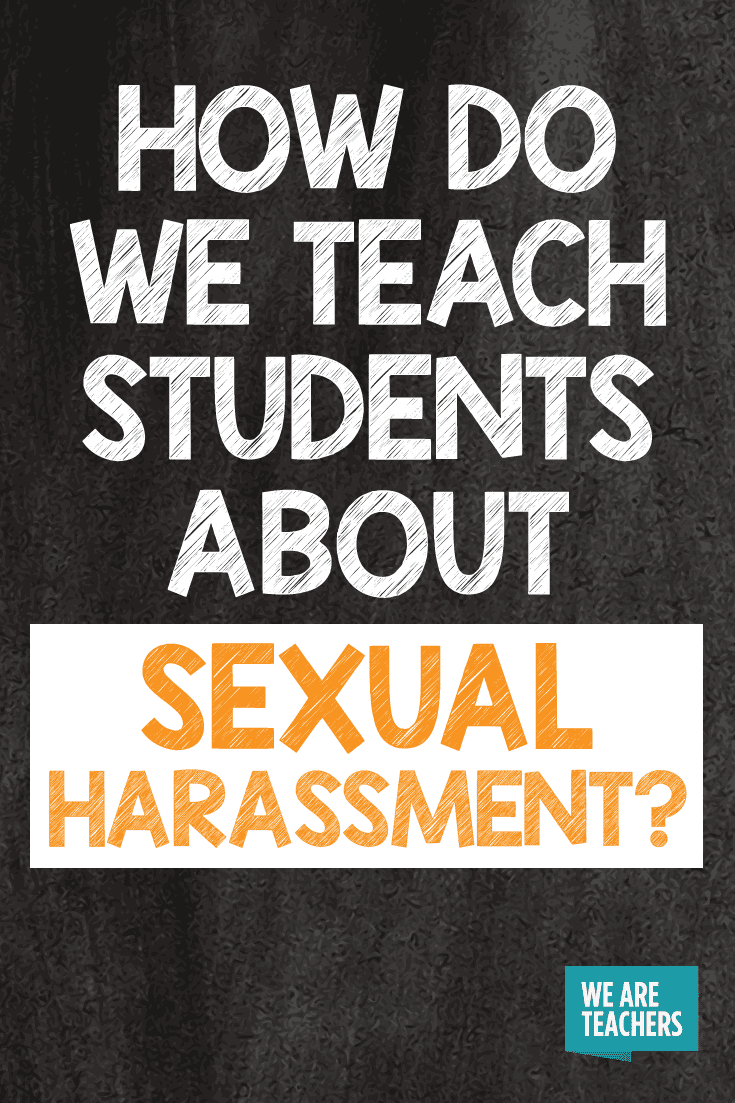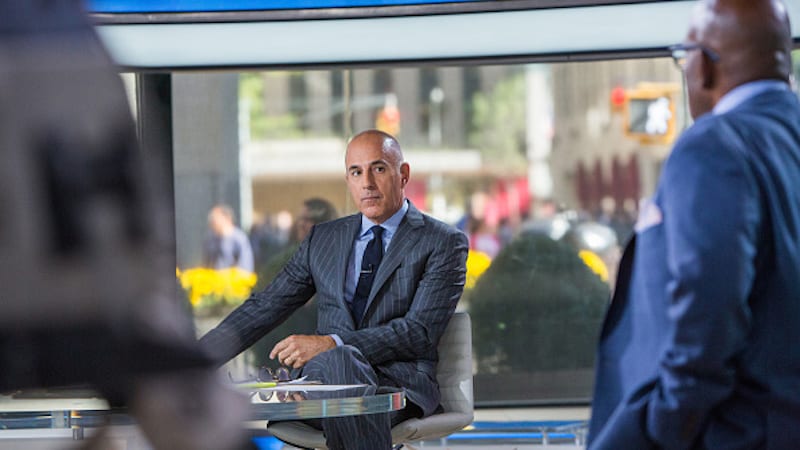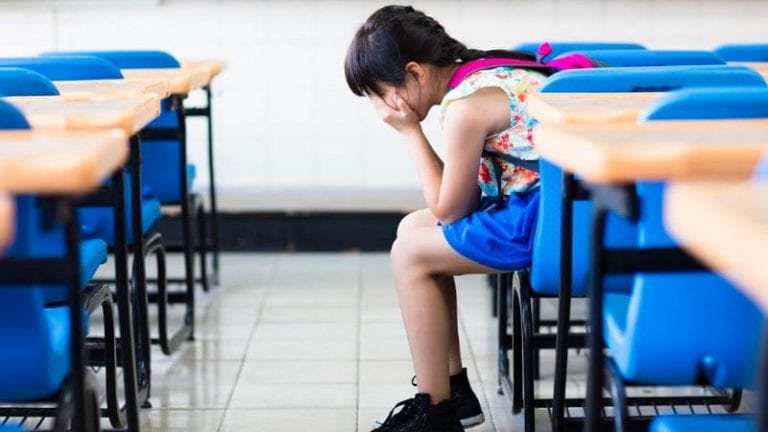I truly don’t know. I have no idea how to talk to someone else’s child about something so personal, so scary, so adult. My students are twelve, for God’s sake; I don’t want to talk to start teaching about sexual harassment, because I don’t want them to have to think about it.
I want them to keep their innocence a little longer, before they start worrying about unwanted sexual attention…but it’s too late for that.
Many of my girls have already been sexually harassed. They’ve had grown men whistle at them on the street, or speculate loudly about what they’d like to do with these girls who still draw unicorns in the margins of their notes and get excited about a new pack of gel pens. And I know it’s not limited to the girls. The fact that none of my boys have reported assault doesn’t mean it’s never happened; it means they don’t feel comfortable talking about it.
It’s incredibly important to talk to these kids about harassment, to talk about the difference between a compliment and a veiled threat. Some have been sexually assaulted, as I was at fourteen, and I’d love to spare them the time I spent feeling that it was somehow my fault. I have to talk to them about this, and more importantly I have to allow them to share their experiences and their concerns.
While I know that some of my girls have been recipients of unwanted attention, I also know that some of my students—both male and female—have been perpetrators.
I’ve seen them catcall people out the bus window, and I’ve seen unwanted hugs forced upon their classmates. It’s tough, because I love these kids, and I believe that they’re good people with good intentions. Good intentions don’t count for much, though, when it comes to issues of consent.
So how do start teaching about sexual harassment? I do it with fear and trembling. The kids I teach aren’t sheltered. But I’m still worried every single time the subject comes up.
And the subject has been coming up a lot. At first, when all the high profile cases in the media began to come to light, my kids didn’t talk about it. They weren’t sure they were allowed to, and in many classes they were right. My class has always been fairly focused on current events, so gradually they began talking around the many, many sexual assault cases in the news. Opening up the discussion revealed that, while they may not be talking about it in school, my kids are aware of what’s happening, and they’re confused about how to respond.
Even when it’s not in the news, I try to bring up the idea of consent in ways that make sense, which is usually as we’re studying literature.
In The Outsiders, Dally takes a seat directly behind two pretty girls, despite rows of empty seats available. “How would that make you feel?” I ask my girls, and they don’t hesitate to answer. “Nervous.” “Uncomfortable.” “Scared.” The next step is harder; it’s willingness to stick with the discussion when it gets difficult. Because then, one of the boys will ask, “Why? It’s a compliment.” I wait to see if the girls will answer, and when they don’t, I do. “It’s because girls are afraid of being raped.”
There’s always a moment of shocked silence when that word comes up. The boys look nervous; the girls look relieved that someone finally said it. They open up, they talk about how their parents won’t let them sleep over at the houses of friends with brothers, how they walk through parking lots holding keys so they’ll have a way to protect themselves, or talk on the phone on the way to throw the trash in the apartment complex Dumpster so that a potential aggressor will think twice. The same things I do to protect myself.
Then we talk about Mayella Ewell when we read To Kill a Mockingbird. And we talk about Lysander and Hermia in Midsummer Night’s Dream; followed by Rowdy and Arnold’s attitudes toward women in Absolutely True Diary of a Part-Time Indian. And we talk about the news, although I’m a little more careful with that one. The key is, we keep talking.
Starting the conversation is an important first step, but we have to follow through with actions.
My kids push boundaries in every possible way…with their parents, their teachers, and with classmates of the opposite gender. It’s my job as their teacher to make those boundaries clear; any touch that is not welcomed and invited by the recipient is not okay. If Katherine tells you she doesn’t want a hug for her birthday and you hug her anyway, be prepared for an office referral. It shows my perpetrators where the limits are, and it gives my girls the confidence to report sexual harassment, because they know we’ll handle it.
How do you talk about sexual harassment with middle schoolers? You just do.
And then you do it again, and again, and again. And you hope the message gets through, because it may go against the message they get at home, from music, from TV…or from the evening news. And that makes our job more important than ever.
Do you have any tips for talking or teaching about sexual harassment? Please share in the comments.


